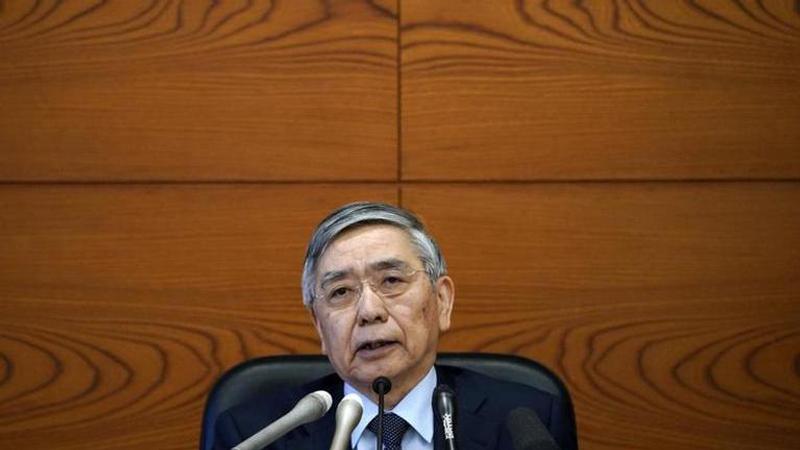Published 10:42 IST, April 27th 2020
Asian markets gain after Japan central bank boosts aid
Asian stock markets gained Monday after Japan's central bank promised more asset purchases to shore up financial markets as investors look to central bankers to support the struggling global economy.

Asian stock markets gained Monday after Japan's central bank promised more asset purchases to shore up financial markets as investors look to central bankers to support the struggling global economy.
Tokyo's benchmark surged 2.4% and Shanghai, Hong Kong and Sydney also gained.
Investors also are looking ahead to meetings of U.S. and European central banks this week for signs of more measures to reverse the deepest global slump since the 1930s. The meetings this week come as mounting evidence shows the coronavirus pandemic’s economic damage is even worse than expected.
The Bank of Japan said it will buy an additional 15 trillion yen ($140 billion) of commercial paper and bank loans. It also lifted its ceiling on purchases of Japanese government bonds, which it has been buying for years to help stave off deflation in Japan's shrinking and aging economy.
That is a “significant increase from the timid 2 trillion yen" in purchases announced in March, Marcel Thieliant of Capital Economics said in a report.
Elsewhere, the U.S. Federal Reserve is more likely to announce it will wait to see the impact of earlier stimulus measures before taking more action, Hayaki Narita of Mizuho Bank said in a report. The European Central Bank “will likely keep its options for easing open.”
This week’s other potentially market-moving events include data from the United States, China, Japan, Germany and France on inflation, trade, industrial activity and retail spending.
The Shanghai Composite Index gained 0.7% to 2,828.13 and Tokyo’s Nikkei 225 rose 2.4% to 19,722.13. The Hang Seng in Hong Kong added 1.6% to 25,223.06.
In Seoul, the Kospi was 1.6% higher at 1,919.21. Sydney’s S&P-ASX 200 gained 0.7% to 5,278.30. Singapore advanced 1.3%.
Investors appear to be trying to look past the outbreak and figure out which companies can survive and prosper after economic conditions improve. China, where the pandemic began in December, has reopened factories and other businesses after numbers of new cases declined.
Spain, Italy and Belgium have announced plans to ease restrictions and other governments including the United States are looking at whether and how to reopen.
President Donald Trump, in the midst of a re-election campaign, is pressing state governors to ease anti-disease controls as early as possible. Spain plans to start easing restrictions on Sunday and Italy on May 4. France will announce its plans next month.
Some U.S. governors have begun lifting shutdown orders despite warnings that could cause a surge in infections, while others including Gov. Andew Cuomo of New York say they want to see a bigger decline in new cases before rolling back curbs.
Wall Street ended last week higher after President Donald Trump signed legislation to provide an additional $500 billion in virus aid, including loans to small businesses.
U.S. government data showed an unexpectedly sharp 14.4% drop in durable goods orders.
That added to grim numbers that are denting investor sentiment, which economists have warned is far too optimistic.
The S&P 500 Index gained 1.4% to 2,836.74. The U.S. benchmark is down 16.2% from its February record. The Dow Jones Industrial Average rose 1.1% to 23,775.25. The Nasdaq composite added 1.7% to 8,634.52.
“Investors have written off 2020 as a shocker and are looking more intently into the landscape in 2021,” Chris Weston of Pepperstone said in a report.
They are due to get more indicators how that future might develop when companies including Exxon, Amazon, Microsoft, Boeing and McDonald’s start reporting quarterly results this week.
In energy markets, benchmark U.S. crude for June delivery lost 99 cents to $15.95 per barrel in electronic trading on the New York Mercantile Exchange. The contract rose 2.7% on Friday to settle at $16.94. Brent crude, used to price international oils, declined 17 cents to $24.64 per barrel in London. It added 0.5% the previous session to $21.44 per barrel.
The dollar was unchanged at 107.49 yen. The euro held steady at $1.0823.
Updated 10:42 IST, April 27th 2020




